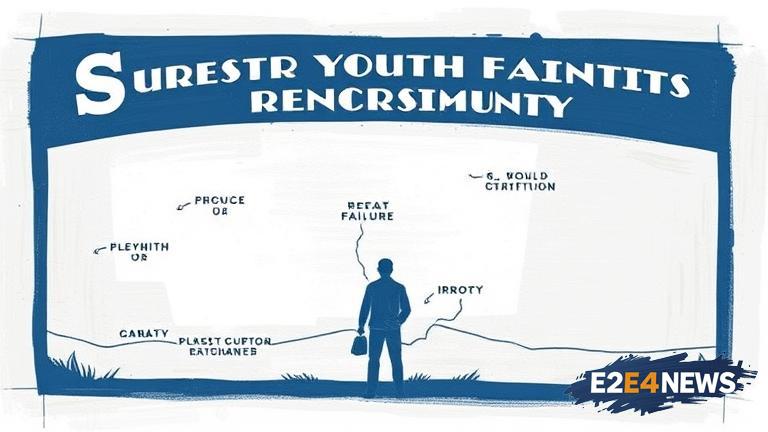A recent investigation has revealed that Idaho foster youth were denied Social Security benefits they were entitled to, resulting in a significant loss of financial support for these vulnerable individuals. The issue has sparked outrage and calls for reform, with many advocating for greater accountability and transparency within the state’s foster care system. According to reports, the Idaho Department of Health and Welfare failed to notify the Social Security Administration of the foster youth’s eligibility, resulting in a loss of benefits totaling millions of dollars. The affected youth were entitled to receive Social Security benefits due to disabilities or the death of a parent, but the state’s failure to notify the SSA meant that these benefits were never received. The investigation found that the state’s foster care system was plagued by inefficiencies and a lack of communication, leading to the denial of benefits for hundreds of foster youth. The issue has been ongoing for years, with many foster youth and their families unaware of the benefits they were entitled to. The state’s failure to provide these benefits has had a significant impact on the lives of these individuals, many of whom rely on these benefits to support their basic needs. The investigation has led to calls for greater oversight and accountability within the state’s foster care system, with many advocating for reforms to ensure that foster youth receive the benefits they are entitled to. The Idaho Department of Health and Welfare has acknowledged the issue and has pledged to take steps to address the problem, including notifying the SSA of the affected youth’s eligibility and providing retroactive benefits to those who were denied. However, many are skeptical of the state’s ability to reform its foster care system, citing a history of inefficiencies and a lack of transparency. The issue has also sparked concerns about the broader implications of the state’s failure to provide benefits to foster youth, including the potential long-term effects on their health, education, and economic stability. As the state works to address the issue, many are calling for greater support and resources for foster youth, including increased funding for programs and services that support their well-being. The investigation has also highlighted the need for greater awareness and education about the benefits and services available to foster youth, including Social Security benefits and other forms of support. In response to the issue, lawmakers and advocates are pushing for legislation that would require the state to notify the SSA of foster youth’s eligibility and provide retroactive benefits to those who were denied. The legislation would also establish greater oversight and accountability within the state’s foster care system, including regular audits and reporting requirements. The issue has sparked a broader conversation about the need for reform within the state’s foster care system, including the need for greater support and resources for foster youth and their families. As the state works to address the issue, many are hopeful that the reforms will lead to improved outcomes for foster youth and a more efficient and effective foster care system. The investigation has also highlighted the importance of advocacy and oversight in ensuring that foster youth receive the benefits and services they are entitled to. The issue serves as a reminder of the need for continued vigilance and advocacy on behalf of vulnerable populations, including foster youth. In the coming months, lawmakers and advocates will be working to pass legislation that addresses the issue and provides greater support and resources for foster youth. The outcome of these efforts will have a significant impact on the lives of foster youth in Idaho, and will serve as a model for other states to follow. The issue has also sparked concerns about the potential for similar problems in other states, highlighting the need for greater oversight and accountability at the national level. As the investigation continues, many are calling for greater transparency and accountability within the state’s foster care system, including regular reporting and auditing requirements. The issue serves as a reminder of the importance of protecting the rights and interests of vulnerable populations, including foster youth. The state’s failure to provide benefits to foster youth has had a significant impact on their lives, and it is imperative that the state takes immediate action to address the issue and provide retroactive benefits to those who were denied. The investigation has also highlighted the need for greater support and resources for foster youth, including increased funding for programs and services that support their well-being. The issue has sparked a broader conversation about the need for reform within the state’s foster care system, including the need for greater accountability and transparency. As the state works to address the issue, many are hopeful that the reforms will lead to improved outcomes for foster youth and a more efficient and effective foster care system.
